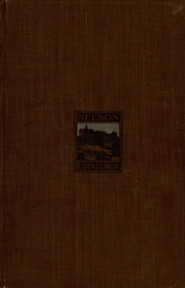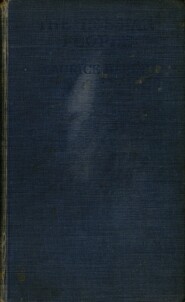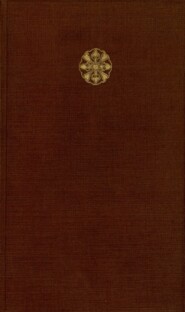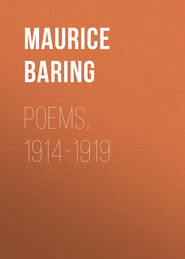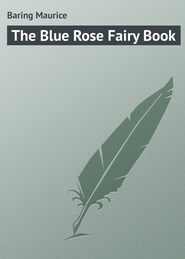По всем вопросам обращайтесь на: info@litportal.ru
(©) 2003-2024.
✖
Overlooked
Настройки чтения
Размер шрифта
Высота строк
Поля
"What are yours?" he said. "I heard nothing about him."
I said I thought that all Mrs. Summer had told me about Canning was true. Rudd, I explained to Sabran, disliked Mrs. Summer, and had drawn a portrait of her as a swooping gentle harpy, which I knew to be quite false. "Although," I said, "I think the things he makes her say about Canning are quite true. I think he reports her thoughts correctly but attributes to her the wrong motives for saying them. I don't believe she ever talked to him about Canning; but he knew her ideas on the subject, through Mrs. Lennox. I believe that Canning arrived at Haréville on purpose to see Miss Brandon. I know that the Italian lady had played no part in his life and that it was just a chance that they met at Haréville. I believe he arrived full of hope, and that when he saw Miss Brandon he realized the situation as soon as he had spoken to her. This is what Rudd makes Mrs. Summer say, and I believe that is what happened. In Rudd's version of Mrs. Summer she is lying. Rudd had already a preconceived notion that Miss Brandon's first love was to forget her. He had made up his mind about that long before the young man came upon the scene, before he knew he was coming on the scene, and when he did, he distorted the facts to suit his fiction."
"Then," said Sabran, "his ideas about Miss Brandon. All that idea of her being the 'Princess without dreams,' without passion, being muffled and half-awake – 'overlooked,' as he says, which I suppose means ensorcelée."
I told him I thought that was not only fiction but perfectly baseless fiction. I reminded him of what Princess Kouragine had said about Miss Brandon.
"I must think it over," said Sabran. "For the present I do not see any completely satisfactory solution. I am convinced of one thing only, and that is that the novelist drew false deductions from facts which were perhaps sometimes correctly observed."
I said I agreed with him. Rudd's deductions were wrong; his facts were probably right in some cases; Sabran's deductions were right, I thought, as far as they went; but we either had not enough facts or not enough intuition to arrive at a solution of the problem.
As I was saying this, Sabran interrupted me and said:
"If we only knew what was in the letter that the Russian received when he was with you we should have the key of the enigma. It was from the moment that he received that letter that he was different, wasn't it?"
I said this was so, and what happened afterwards proved that it was not my imagination.
"What in the world can have been in that letter?" said Sabran.
I said I did not think we should ever know that.
"Probably not," he said, musingly. "And that incident about the story of the Brass Ring. Do you think that happened? Did they say all that?"
I was able to tell him exactly what had happened with regard to that incident.
"I was sitting in the garden. It was, I think, the morning after they had all been to the lakes, and about the middle of the day, after the band had stopped playing, shortly before déjeuner, that Rudd, Miss Brandon, Kranitski and Mrs. Summer all came and talked to me before I went into the hotel.
"Miss Brandon gave the copy of the Saturday Review, or whatever the newspaper was, back to Rudd, and mentioned the story of the 'Brass Ring,' and they discussed it, and I asked what it was about. Rudd was asked to read it aloud to us, and he did. Miss Brandon and Kranitski made no comments; and Rudd asked Kranitski if he thought the man had done right to throw away his ring, and Kranitski said: 'A chain is no stronger than its weakest link.'
"Rudd said: 'Perhaps the brass ring was the strongest link.'
"Kranitski and Miss Brandon said nothing, and Mrs. Summer said she was glad the man had not thrown the ring away. Then Rudd asked Miss Brandon whether she had ever thrown away her brass ring.
"Miss Brandon said she hadn't got one, and changed the subject. Then they all left me. That was all that happened."
"I understand," said Sabran; "that is interesting, and it helps us to understand the methods of the novelist. But we are still no nearer a solution. I must think it over. Que diable y avait-il dans cette lettre?"
THE PAPERS OF ANTHONY KAY – PART II
III
The more I thought over the whole story the more puzzling it seemed to me. The puzzle was increased rather than simplified by a letter which I received from Kranitski from Africa, in which he expressed no intention of coming back, but said he was living by himself, quite contented in his solitude.
I told Sabran of this letter and the Doctor said we were without one important donnée, some probably quite simple fact which would be the clue of the whole situation: the contents of the letter Kranitski had received when he was with me —
"What we want," he said, "is a moral Sherlock Holmes, to deduce what was in that letter – "
It was after I had been at Haréville about ten days, that Sabran asked me whether I would like to make the acquaintance of a Countess Yaskov. She was staying at Haréville and was taking the waters. He had only lately made her acquaintance himself, but she was dining with him and he wanted to ask a few people to meet her. I asked him what she was like. He said she was not exactly pretty, but gentle and attractive. He said: "Elle n'est pas vraiment jolie, mais elle a une jolie taille, de beaux yeux, et des perles."
She had been divorced from her husband for years and lived generally at Rome, so he had been told.
I went to Sabran's dinner. There were several people there. I had never met Countess Yaskov before. She seemed to be a very pleasant and agreeable lady. I sat next to her. She was an accomplished musician, and she played the pianoforte after dinner with a ravishing touch. She was certainly gentle, intelligent, and natural. We were talking of Italy, when she astonished me by saying she had not been there for some time. Later on she astonished me still more by talking of her husband in the most natural way in the world. But I had heard cases of Russians being divorced and yet continuing to be good friends. I longed to ask her if she knew Kranitski, but I could not bring his name across my lips. I asked her if she knew Princess Kouragine. She said, "Which one?" And when I explained or tried to describe the one I knew, there turned out to be about a dozen Princess Kouragines scattered all over Europe; some of them Russian and some of them not, so we did not get any further, and Countess Yaskov was vagueness itself.
We talked of every conceivable subject. As she was going away she asked Sabran if he could lend her a book. He lent her Rudd's Unfinished Dramas, and asked me if he might lend her Overlooked. I said certainly, but I explained that it was more or less a private book about real people.
Two or three days later I met her in the park. She asked me if I had read Rudd's story. I told her it had been read to me.
"But it is meant to happen here, isn't it?" she said. "And aren't you one of the characters?"
I said this was, I believed, the case.
"Then you were here when all that happened?" she said. "Did it happen like that, or was it all an invention?"
I said I thought there was some basis of fact in the story, and a great deal of fancy, but I really didn't know. I did not wish to let her know at once how much I knew.
"Novelists," I said, "invent a great deal on a very slender basis, especially James Rudd."
"You know him?" she said. "He was here with you, of course?"
I told her I had made his acquaintance here, but that I had never seen him before or since.
"What sort of man is he?" she asked.
I gave her a colourless, but favourable portrait of Rudd.
"And the young lady?" she said, "Miss – I've forgotten her name."
"The heroine?" I asked.
"Yes, the heroine who is 'overlooked.' Do you think she was 'overlooked'?"
"In what sense?"
"In the fairy-tale sense."
I said I thought that was all fancy-work.
"I wonder," she said, "if she married the young man."
"Which one?"
"The Englishman."
I said I had not heard of her being married.
"And was there a Russian here, too?" she asked.
"Yes," I said, "his name was Kranitski."
I said I thought that all Mrs. Summer had told me about Canning was true. Rudd, I explained to Sabran, disliked Mrs. Summer, and had drawn a portrait of her as a swooping gentle harpy, which I knew to be quite false. "Although," I said, "I think the things he makes her say about Canning are quite true. I think he reports her thoughts correctly but attributes to her the wrong motives for saying them. I don't believe she ever talked to him about Canning; but he knew her ideas on the subject, through Mrs. Lennox. I believe that Canning arrived at Haréville on purpose to see Miss Brandon. I know that the Italian lady had played no part in his life and that it was just a chance that they met at Haréville. I believe he arrived full of hope, and that when he saw Miss Brandon he realized the situation as soon as he had spoken to her. This is what Rudd makes Mrs. Summer say, and I believe that is what happened. In Rudd's version of Mrs. Summer she is lying. Rudd had already a preconceived notion that Miss Brandon's first love was to forget her. He had made up his mind about that long before the young man came upon the scene, before he knew he was coming on the scene, and when he did, he distorted the facts to suit his fiction."
"Then," said Sabran, "his ideas about Miss Brandon. All that idea of her being the 'Princess without dreams,' without passion, being muffled and half-awake – 'overlooked,' as he says, which I suppose means ensorcelée."
I told him I thought that was not only fiction but perfectly baseless fiction. I reminded him of what Princess Kouragine had said about Miss Brandon.
"I must think it over," said Sabran. "For the present I do not see any completely satisfactory solution. I am convinced of one thing only, and that is that the novelist drew false deductions from facts which were perhaps sometimes correctly observed."
I said I agreed with him. Rudd's deductions were wrong; his facts were probably right in some cases; Sabran's deductions were right, I thought, as far as they went; but we either had not enough facts or not enough intuition to arrive at a solution of the problem.
As I was saying this, Sabran interrupted me and said:
"If we only knew what was in the letter that the Russian received when he was with you we should have the key of the enigma. It was from the moment that he received that letter that he was different, wasn't it?"
I said this was so, and what happened afterwards proved that it was not my imagination.
"What in the world can have been in that letter?" said Sabran.
I said I did not think we should ever know that.
"Probably not," he said, musingly. "And that incident about the story of the Brass Ring. Do you think that happened? Did they say all that?"
I was able to tell him exactly what had happened with regard to that incident.
"I was sitting in the garden. It was, I think, the morning after they had all been to the lakes, and about the middle of the day, after the band had stopped playing, shortly before déjeuner, that Rudd, Miss Brandon, Kranitski and Mrs. Summer all came and talked to me before I went into the hotel.
"Miss Brandon gave the copy of the Saturday Review, or whatever the newspaper was, back to Rudd, and mentioned the story of the 'Brass Ring,' and they discussed it, and I asked what it was about. Rudd was asked to read it aloud to us, and he did. Miss Brandon and Kranitski made no comments; and Rudd asked Kranitski if he thought the man had done right to throw away his ring, and Kranitski said: 'A chain is no stronger than its weakest link.'
"Rudd said: 'Perhaps the brass ring was the strongest link.'
"Kranitski and Miss Brandon said nothing, and Mrs. Summer said she was glad the man had not thrown the ring away. Then Rudd asked Miss Brandon whether she had ever thrown away her brass ring.
"Miss Brandon said she hadn't got one, and changed the subject. Then they all left me. That was all that happened."
"I understand," said Sabran; "that is interesting, and it helps us to understand the methods of the novelist. But we are still no nearer a solution. I must think it over. Que diable y avait-il dans cette lettre?"
THE PAPERS OF ANTHONY KAY – PART II
III
The more I thought over the whole story the more puzzling it seemed to me. The puzzle was increased rather than simplified by a letter which I received from Kranitski from Africa, in which he expressed no intention of coming back, but said he was living by himself, quite contented in his solitude.
I told Sabran of this letter and the Doctor said we were without one important donnée, some probably quite simple fact which would be the clue of the whole situation: the contents of the letter Kranitski had received when he was with me —
"What we want," he said, "is a moral Sherlock Holmes, to deduce what was in that letter – "
It was after I had been at Haréville about ten days, that Sabran asked me whether I would like to make the acquaintance of a Countess Yaskov. She was staying at Haréville and was taking the waters. He had only lately made her acquaintance himself, but she was dining with him and he wanted to ask a few people to meet her. I asked him what she was like. He said she was not exactly pretty, but gentle and attractive. He said: "Elle n'est pas vraiment jolie, mais elle a une jolie taille, de beaux yeux, et des perles."
She had been divorced from her husband for years and lived generally at Rome, so he had been told.
I went to Sabran's dinner. There were several people there. I had never met Countess Yaskov before. She seemed to be a very pleasant and agreeable lady. I sat next to her. She was an accomplished musician, and she played the pianoforte after dinner with a ravishing touch. She was certainly gentle, intelligent, and natural. We were talking of Italy, when she astonished me by saying she had not been there for some time. Later on she astonished me still more by talking of her husband in the most natural way in the world. But I had heard cases of Russians being divorced and yet continuing to be good friends. I longed to ask her if she knew Kranitski, but I could not bring his name across my lips. I asked her if she knew Princess Kouragine. She said, "Which one?" And when I explained or tried to describe the one I knew, there turned out to be about a dozen Princess Kouragines scattered all over Europe; some of them Russian and some of them not, so we did not get any further, and Countess Yaskov was vagueness itself.
We talked of every conceivable subject. As she was going away she asked Sabran if he could lend her a book. He lent her Rudd's Unfinished Dramas, and asked me if he might lend her Overlooked. I said certainly, but I explained that it was more or less a private book about real people.
Two or three days later I met her in the park. She asked me if I had read Rudd's story. I told her it had been read to me.
"But it is meant to happen here, isn't it?" she said. "And aren't you one of the characters?"
I said this was, I believed, the case.
"Then you were here when all that happened?" she said. "Did it happen like that, or was it all an invention?"
I said I thought there was some basis of fact in the story, and a great deal of fancy, but I really didn't know. I did not wish to let her know at once how much I knew.
"Novelists," I said, "invent a great deal on a very slender basis, especially James Rudd."
"You know him?" she said. "He was here with you, of course?"
I told her I had made his acquaintance here, but that I had never seen him before or since.
"What sort of man is he?" she asked.
I gave her a colourless, but favourable portrait of Rudd.
"And the young lady?" she said, "Miss – I've forgotten her name."
"The heroine?" I asked.
"Yes, the heroine who is 'overlooked.' Do you think she was 'overlooked'?"
"In what sense?"
"In the fairy-tale sense."
I said I thought that was all fancy-work.
"I wonder," she said, "if she married the young man."
"Which one?"
"The Englishman."
I said I had not heard of her being married.
"And was there a Russian here, too?" she asked.
"Yes," I said, "his name was Kranitski."






